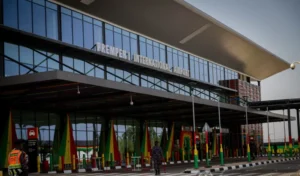Ghana’s government is preparing to launch an initiative that will commercialize kenaf fiber production. This project, which aims to create 16,000 jobs, will reduce the country’s dependence on imported jute sacks.
Dr. Peter Boamah Otokunor, the Director of Presidential Initiatives in Agriculture and Agribusiness, shared the details during the CropLife Ghana Annual General Meeting for CEOs and Managing Directors at the Mensvic Grand Hotel in Accra.
Reducing Jute Import Costs
Dr. Otokunor pointed out that Ghana spends millions of dollars each year on importing jute sacks. “We import about 30 million jute sacks annually, costing us around 60 million dollars,” he said.
He stressed that kenaf, which can be grown throughout the country, offers a sustainable solution. “Kenaf plants can thrive in all regions of Ghana, and this initiative will replace the need for jute imports,” Dr. Otokunor noted.
Focus on the Entire Jute Value Chain
The Jute Value Chain Development Initiative plans to address the entire supply chain, from seed production to commercialization. Dr. Otokunor announced that the government is finalizing agreements with private sector partners to begin large-scale kenaf seed production.
“We aim to develop the full value chain, making kenaf a viable alternative to jute and creating jobs in the process,” he said.
Job Creation and Economic Growth
The initiative will not only reduce Ghana’s import costs but also provide significant job opportunities. The project will create 16,000 jobs in the agricultural and agribusiness sectors, boosting the country’s economic development.




